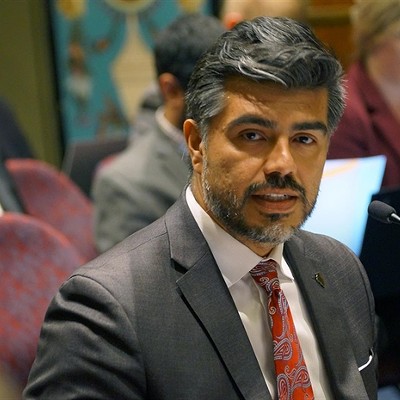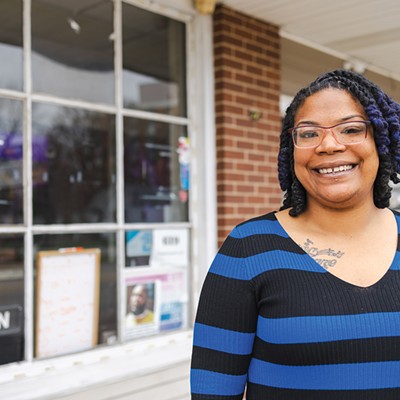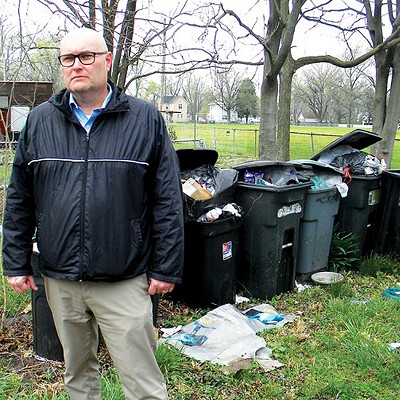The University of Illinois Springfield is going to pot.
The capital city's state university has partnered with the online marijuana educator Green Flower to offer a certificate program for students interested in entering management within the cannabis industry.
The program, which began in 2020, is geared toward fostering economic development within central Illinois, said Robert Kerr, director of continuing and professional education at UIS.
Unlike most programs at the university, the cannabis curriculum does not lead to a degree and is offered only online. But Kerr said it offers enormous potential for students who enroll.
Max Simon, CEO of Green Flower, said his California-headquartered firm partners with no more than one college or university in each state. Its 20 partnerships range from Syracuse to Louisiana State University.
"It is like a mini cannabis MBA program because it gives you this very wide but deep overview of how to understand the cannabis industry," he said.
The program consists of four tracks, each of which consists of 405 hours of instruction. The tracks are:
• The business of cannabis
• Cannabis compliance and risk management
• Cannabis health care and medicine
• Cannabis agriculture and horticulture
"What I liked about the Green Flower program is their content was developed using experts from across the country," Kerr said. "They have the four different programs and they also have this employer network. We were able to partner with Green Flower.
"We got all of that in one fell swoop. It was just a great combination. And I can tell you that my team does instructional design. We primarily build non-credit programs for different partners. So, I had my team go through their content with a fine-tooth comb. It was great content from start to finish."
In much the same way casino executives prefer the term "gaming" to "gambling," those involved with this new industry prefer the term "cannabis" to "marijuana."
"The term 'marijuana' has a sordid history. So, the Illinois legislation refers to it as 'cannabis,'" Kerr said.
Both Kerr and Simon stressed that this program is geared for those wanting to enter management positions rather than entry-level jobs within the industry.
"I would say the vast majority of people come because they're cannabis lovers themselves," Simon said. "They love the product and they love what's happening in the space. But they just don't know how everything works. How do you break in? Or how do you gain a sense of credibility?"
Kerr said as of January, 154 students have enrolled in the program. Classes are prerecorded and available online and facilitators are available to answer student questions as they work their way through the curriculum.
Simon said the lecturers for the classes are industry experts.
"We started the business in 2014, and that's given me a real opportunity to build our network of subject-matter experts, which right now is north of 700 people. We pretty much exclusively work with cannabis operators – people who have run these exact kind of businesses. For example, one of the cultivation teachers is Kevin Jodrey, who is a well-established legacy cannabis cultivator and is now one of the preeminent cultivators here in California.
"We talked to Shane Terry, who runs a large manufacturing operation in Nevada. We have Al Foreman, who is one of the largest venture capitalists in the cannabis space, talk about understanding the cannabis financial landscape. In essence, we find operators, not necessarily teachers, and then we bring our instructional designers into the equation so that we can design courses that are valuable to students."
The tuition cost for each program is $2,500, Kerr said. "We have payment plans available, but federal financial aid does not cover this. The aid does not cover non-credit programs," he said.
The value of a certificate rather than a degree from a university can be a bit of an open question. But Simon says it makes job candidates stand out.
"It's a differentiator. The truth is there's a high demand for people to join the cannabis industry. When any of these places – dispensaries, manufacturers, cultivators – post jobs there's a lot of people who want those jobs. ... Often the people who want those jobs don't have any professional cannabis background. They're just cannabis fans themselves, cannabis aficionados, you know? And you only have two pathways to validate your credibility.
"Either you get direct experience inside the industry, which means you've got to break in somehow and get that experience. Or you've got to get an education. Those are the pathways to build some sense of differentiation."
While recreational and medical marijuana have been legalized in Illinois and some other states, federal law continues to prohibit the substance. But federal drug policy in recent years has been not to enforce those laws against state-regulated cannabis businesses.
Simon said his firm is partnering with universities such as UIS to give greater legitimacy to the business.
"People ask all the time, 'Why did you guys start partnering with universities?' It was to be very clear that this is a legitimate industry that has a lot of potential and is well run. An institution like the University of Illinois brings a level of credibility to that statement."
Scott Reeder, a staff writer for Illinois Times, can be reached at [email protected].




















